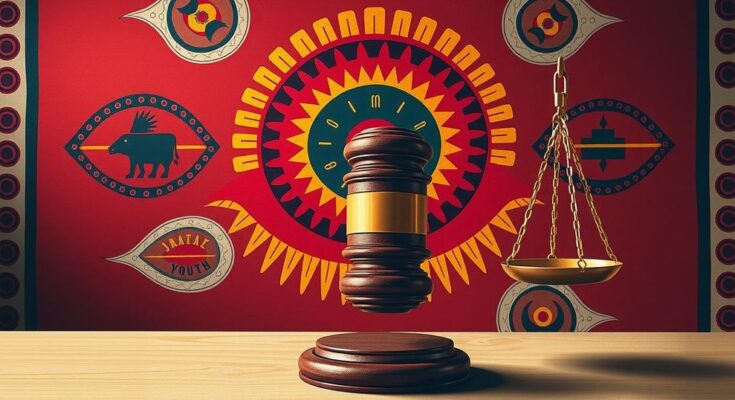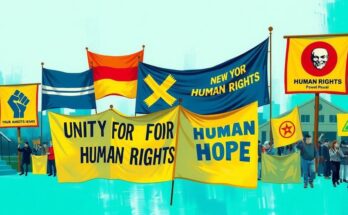A collective of human rights lawyers and Aboriginal leaders has approached the United Nations, seeking intervention regarding Australia’s severe youth crime policies. This complaint, supported by the Human Rights Law Centre, argues that these “tough-on-crime” strategies have perpetuated racial discrimination and violated the human rights of Aboriginal and Torres Strait Islander children, who are disproportionately impacted.
The complaint highlights distressing policies, including stringent bail laws and the incarceration of children as young as 14, as well as inhumane practices like solitary confinement and spit hoods. Dr Hannah McGlade, who co-authored the complaint, emphasised that these harsh measures have tragic consequences, stating that “Aboriginal children are actually losing their lives from some of these cruel practices.”
Statistics reveal that on any given night, two-thirds of the 722 youths aged 10 to 17 in detention are First Nations children, despite them constituting only 6.6% of the population for that age bracket. The detention rates for these children have been on the rise since 2020, highlighting a shocking disparity: First Nations youth are 27 times more likely to be detained than their non-Indigenous counterparts.
Catherine Liddle from SNAICC pointed out that systemic failures are often the root causes leading children into the justice system. She described many of these youths as living in overcrowded conditions, lacking basic necessities—ultimately becoming victims of a failing system. Liddle emphasized the need to rethink the approach towards these children, advocating for investment in their futures rather than punitive measures.
The complaint also criticises the government’s focus on funding law enforcement and prison systems, neglecting crucial social services that could help prevent youth crime. Dr McGlade warned that Australia is not complying with its international human rights obligations, urging a shift to safer and more humane practices in line with global standards.
While the federal attorney-general’s office emphasised that child protection and youth justice are primarily state responsibilities, they noted a significant investment in community-led justice initiatives. Responses from various state representatives defended their recent legislations as necessary measures to combat youth crime. However, critics argue this approach merely perpetuates the cycle of incarceration.
Highlighting the urgent need for reform, the complaint, bolstered by the national children’s commissioner’s findings, calls for specific actions: implementing treaties that safeguard the rights of Indigenous children, adhering to previous recommendations for youth justice reform, and increasing funding for essential support services.
This situation has escalated to a point where advocates stress the need for immediate action, given that numerous inquiries have already identified systemic issues. Ms Liddle asserted that substantial inquiries have yielded no effective changes, stating, “Now, that’s extraordinary,” and called for a concerted response.
Despite government commitments to the Closing the Gap agreement, progress has been stagnant. A staggering $1 billion is spent annually on incarcerating children, bringing into question the efficacy of the ongoing tough-on-crime approach. As Dr McGlade stated, such policies have consistently proven inadequate and often exacerbate the very issues they aim to address, leading to cyclical patterns of offending among youths.
A coalition of human rights lawyers and Aboriginal leaders has lodged a complaint with the UN against Australia’s youth crime policies, denouncing them as discriminatory and punitive. These policies disproportionately affect Aboriginal and Torres Strait Islander children, who are subject to severe laws including harsh bail regulations and incarceration. The complaint advocates for significant reforms, emphasising the need for investment in prevention and support services instead of imprisonment.
In summary, the UN complaint serves as a clarion call against Australia’s youth justice policies, particularly the severe impact on Aboriginal communities. It underscores the urgent need for reforms that prioritise support over incarceration, highlighting statistics that reveal a systemic crisis. With leaders advocating for humane treatment aligning international standards, this article reflects an ongoing struggle for justice and equality for First Nations youth in Australia.
Original Source: www.abc.net.au



